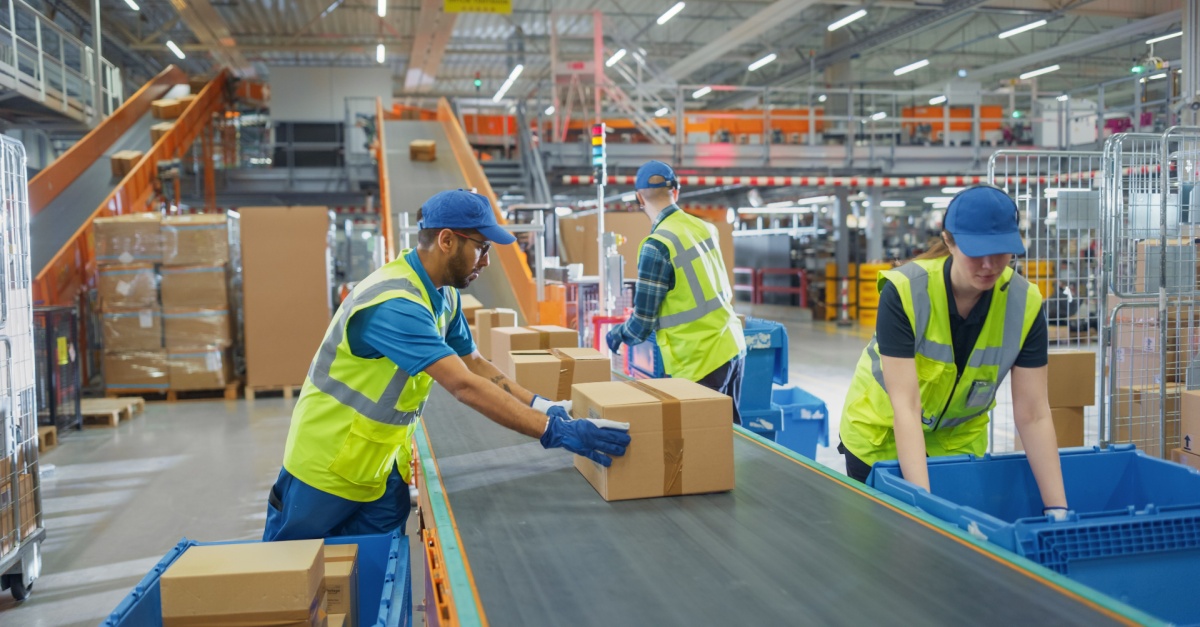The logistics sector is facing a complex mix of trade tensions, shifting policies, and unpredictable demand, all of which are shaping freight, warehousing, and supply chains across the nation. We are right in the middle of a supply chain recalibration, in which long-term decisions are being made in short-cycle environments.
In this edition of our industry roundup, we break down how tariff uncertainty under the Trump administration is reshaping sourcing strategies, reducing e-commerce volumes, and leading to a reset of last-mile delivery economics. Meanwhile, sweeping tax reforms and regulatory changes, from the repeal of de minimis (the exemption that allowed duty-free imports of goods valued at less than $800) to new manufacturing credits, are redrawing the map for retail, trucking, and industrial growth.
Trucking Holds Steady as Wages Rise Past $31 Per Hour
June saw a drop of 2,700 trucking jobs, which has left the year-over-year growth flat. Earlier job totals for April and May were also revised downward. Trucking employment now stands at 1.52 million. Meanwhile, warehouse jobs remain volatile, but rose by 2,300 in June, even though total employment in the sector is still 15,000 jobs below its level last year.
However, it is not all gloom. Long-distance truckload jobs increased by 3,700, which Uber Freight’s Mazen Danaf attributes to overconfidence among carriers. Meanwhile, hourly truck wages reached $31.11 in May, representing a 3.9% annual increase. Couriers added 50,400 jobs year over year, while rail jobs continued to decline.
Tariffs Shake E-Commerce, Driving Cost Cuts and Strategy Shifts
New data from AlixPartners reveals a sharp decline in online shopping. Home delivery orders decreased across major categories, including office supplies (down 13 points), sporting goods (down 12 points), and large electronics, cosmetics, and furniture (all down 10 points). It is clear that uncertainty over tariffs is influencing buying patterns.
According to AlixPartners, 34% of consumers delayed purchases, while 28% rushed to buy before prices rose. Two-thirds of shoppers say they’d switch to U.S.-made goods if import costs rise 10%. To cut last-mile delivery expenses, retailers are tightening free shipping offers and promoting in-store returns and curbside pickup.
Warehouse Vacancies Hit 11-Year High Amid Trade Uncertainty
U.S. warehouse vacancy reached 7.1% in Q2, the highest level since 2014, up from 6.1% a year ago, according to Cushman & Wakefield. Activity remains stop-start, said Cushman’s Jason Tolliver, as companies adjust to shifting tariff timelines. With new tariffs looming, many businesses froze leasing and shifted goods to existing locations.
Meanwhile, sublease space reached 225 million square feet, a 25% increase year over year. New construction slowed sharply, with newly available space down 45% from last year. However, despite the soft demand, the industry has seen the average rent rise 3% to $10.12 per square foot.
Tariff Countdown Resumes: August 1 Deadline Disrupts Trade
The Trump administration has announced that elevated tariffs now will take effect August 1. And manufacturers, importers, and supply chain teams are on high alert. The newly elevated rates include:
- 40% on Laos and Myanmar
- 36% on Cambodia and Thailand
- 35% on Bangladesh and Serbia
- 25% on Japan, South Korea, and Malaysia
A new penalty will target transshipped goods intended to circumvent duties. The 10% base duty remains, with additional sector-specific taxes, including a 25% tax on automobiles. In a letter to Japan’s Prime Minister, Trump called the 25% figure insufficient to correct the trade deficit. To ensure compliance, the White House also warned of further increases if partners retaliate.
Tax and Tariff Overhaul Reshapes US Supply Chain Strategy
On July 4, President Trump signed the “One Big Beautiful Bill Act,” which reshapes U.S. tax and trade policy. Key provisions from the bill include:
- Bonus depreciation rules extended.
- Restored tax credits for manufacturers.
- New protections for U.S. battery production.
- Corporate tax rate is fixed at 21% permanently.
- Repeal of the de minimis rule (no more duty-free imports under $800).
Industry groups praised the bill for closing loopholes that harm domestic manufacturing. Trucking leaders welcomed relief from a potential tax hike, saying it will enable small fleets to reinvest. Sectors ranging from chemicals to retail view the reforms as a stabilizing force for jobs and long-term planning.
Navigate the Freight Crisis with Wicker Parker Logistics
In the midst of uncertainty, having an expert partner by your side is a no-brainer. That is what Wicker Parker Logistics offers.
Leveraging deep industry expertise, robust logistics and transportation technology solutions, and a consultative approach, the company offers on-demand transportation equipment and service (FTL, LTL, flatbed, hot shot, reefer, ocean, and intermodal) and provides end-to-end visibility into every shipment. Contact us today for a quick quote.















